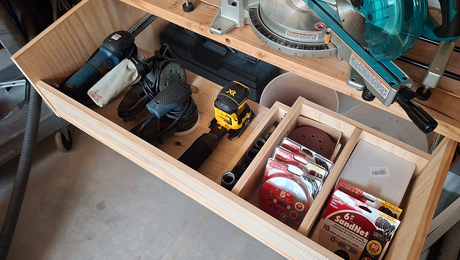Hoping to install an under-the-floor hydronic heating system in a 1700 square foot house in a Denver suburb, we need to decide between a ground source neat pump and a modulating, condensing gas boiler. We don’t have a need for summer cooling, have plenty of land to bury a loop field. We plan to live there for many years, so don’t object to a considerable initial expense. The question is which system would be less expensive to operate? If the heat pump needs supplemental heat, it must come from expensive electricity. Should we consider installing both systems, with the boiler as a back-up for the heat pump? If you’ve been down this road, your observations are especially welcome.
Discussion Forum
Discussion Forum
Up Next
Video Shorts
Featured Story

Listeners write in about removing masonry chimneys and ask about blocked ridge vents, deal-breakers with fixer-uppers, and flashing ledgers that are spaced from the wall.
Featured Video
How to Install Exterior Window TrimHighlights
"I have learned so much thanks to the searchable articles on the FHB website. I can confidently say that I expect to be a life-long subscriber." - M.K.
Fine Homebuilding Magazine
- Home Group
- Antique Trader
- Arts & Crafts Homes
- Bank Note Reporter
- Cabin Life
- Cuisine at Home
- Fine Gardening
- Fine Woodworking
- Green Building Advisor
- Garden Gate
- Horticulture
- Keep Craft Alive
- Log Home Living
- Military Trader/Vehicles
- Numismatic News
- Numismaster
- Old Cars Weekly
- Old House Journal
- Period Homes
- Popular Woodworking
- Script
- ShopNotes
- Sports Collectors Digest
- Threads
- Timber Home Living
- Traditional Building
- Woodsmith
- World Coin News
- Writer's Digest


















Replies
At 10 cents per kW-hr, GSHP delivers anywhere between 10,000 and 13,000 BTUs for that 10 cents depending on the details of the GSHP. Have seen some systems with no fans (hydronic) reach 16,000 BTUs per kW-hr, but even using 10k to 13k for your calc will likely show GSHP the winner.
At the lower number of BTUs, NG would have to be less than $1.00/therm (approx 100 cu ft) to be competitive. Your wont have to worry about supplemental heat with GSHP unless the system is under sized.
Do the math for your rates in Denver.
Did a study for Springfield IL last year, where electricity is only 4cents kW-hr and nat gas over $1.30. Even air-air HP obvious choice then.
Hi,In your numbers you are using a COP of (13000/3412) = 3.8?
Have you seen any data that indicates what kind of COP GSHPs deliver in actual residential installations (in real life)? I have been looking for such data and not found much.One more consideration is that for heating, the GSHP will likely produce more greenhouse gas than the condensing gas boiler -- for both to deliver 100K BTU to the house:GSHP (with electricity from coal fired power plant):
(100,000 BTU/11500 BTU/kwh) = 6.7 KWH
This will generate 13.9 lbs of CO2Boiler:
(100,000 BTU/(100,000BTU/therm)/(0.95efic) = 1.05
This will generates 12.6 lbs of CO2The carbon numbers are from:
http://www.infinitepower.org/calc_carbon.htmSo, the GSHP generates about 10% more GHG than the boiler. Not a lot of difference, but (I think) in the opposite direction that most people would guess.Denver is a good solar heating location, have you thought about supplementing the gas boiler with solar heating? If the extra money you were going to spend on the GSHP was spent on solar heating collectors you mights save as much or more money, AND reduce greenhouse gas emissions?
Solar heating works well with radiant floor systems, which run OK at the low temperatures the solar collectors produce efficiently.Gary
http://www.BuildItSolar.com
Holy Smokes!!
If you believe all the greenhouse gas spew, you better be buying Canadian tundra.
Do you realize that Rugby ND is the center of the continental mass of North America.
Think of all the arable acres for feeding the world's hungry that will open up with global warming, it is actually a good thing except for East coat shoreline dwellers.
One persons paranoia is anothers gold mine.
Was too late in buying into the oil sands though (downer, ugh)
I'm building in southern CO at an elevation of 11,000 ft and we looked into a GSHP system and discovered that our soil was to dry for it to work cost effectively. Maybe Denver has different conditions.
With regard to our system (infloor radiant), I did the math and figured that using an Electric Thermal Storage unit from San Isabelle Electric was the most cost effective way to go as a heat source. It enables me to utilize their off peak rates and will cost me 40-50% less than propane per BTU. The initial install cost is about a wash either way. Talk to your electric co. and your nat'l gas dealer to get their opinion.
How's come you don't need cooling? It was 93 degrees yesterday!
Only speaking for my house, we've been close to that temp here. House is still coasting along at 70-71º. We never ac. Depends entirely on the house.PAHS Designer/Builder- Bury it!